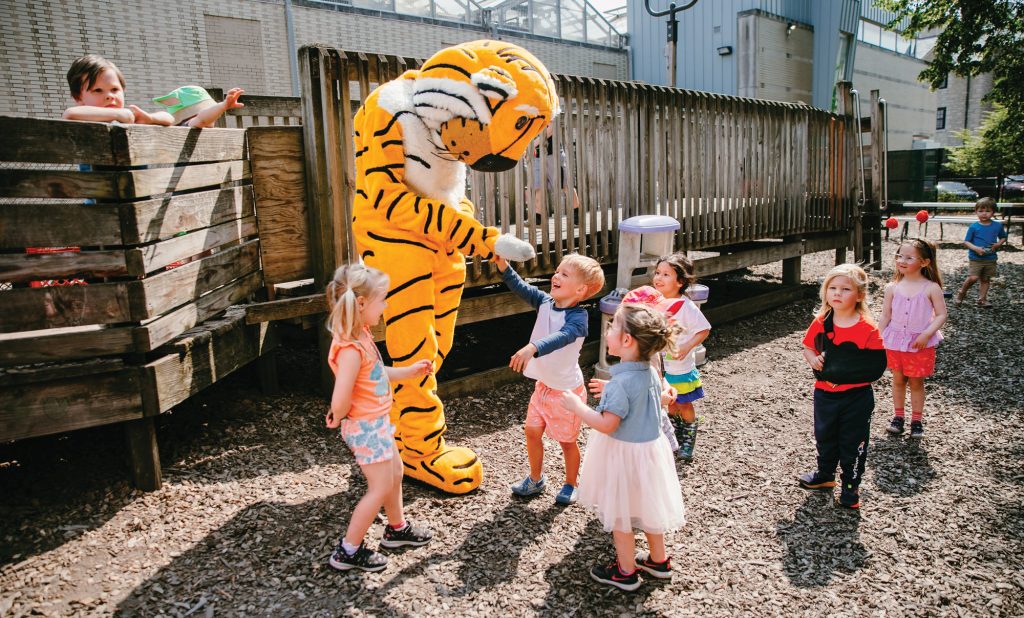Lab for growth
For a hundred years, children have played and learned on campus while Mizzou students gained the knowledge and experience to care for them, and faculty researchers have created new knowledge.

Over its century of existence, the Child Development Lab has evolved toward its three-part mission — research, observation and hands-on teaching for college students, as well as caring for and educating young children. The lab sits in the College of Education and Human Development’s Department of Human Development and Family Science. It may look at first glance like a play-place, but the lab has long been the locale of serious academic work.
Research
College faculty won more than $10 million in research funding during the past year to study early childhood education, training and development. “Research has always been a primary mission of this land grant institution,” says Brenda Lohman, who chairs the department. She says research helps shape best practices in the field — the kind that students learn and apply in their careers.
Researchers from across campus can collect data at the lab, which includes special rooms for observation and assessment. Recently, investigators have investigated self-regulation; the importance of play as curriculum; factors affecting trust; and topics in occupational and physical therapy. The lab’s convenient location in the heart of campus is a boon to researchers, Lohman adds.
Teaching
The department’s child development practicum courses every fall (preschool) and spring (infant and toddler) offer Mizzou students both classroom and hands-on education. In class, says lab director Miranda Clines, “They take a deep dive into curriculum, child development theory and classroom management,” among other topics.
In the lab, Clines continues, “Students gain experience working with children and try on what it’s like to be a teacher.” They work under the supervision and mentorship of experienced teachers. It’s not only child development and education majors who benefit from chances to try out their knowledge, though. Students from the College of Agriculture, Food and Natural Resources, for instance, delivered a presentation to lab children on healthy eating habits and where their food comes from. The kids even practiced milking a pretend cow, a task they then carried out on the real thing during a field trip. And future educators from multiple majors study best teaching practices, as well as children’s learning and development, from the observation booths in each classroom.
Care and education
Students sometimes start the semester nervously, having scarcely spoken to a young child, but finish it confidently implementing curriculum, helping assess children’s skills and walking parents through their children’s next developmental steps.
The lab is unique because it is not a daycare, Clines says. “It is a learning lab for students, and its byproduct is care for young children.”